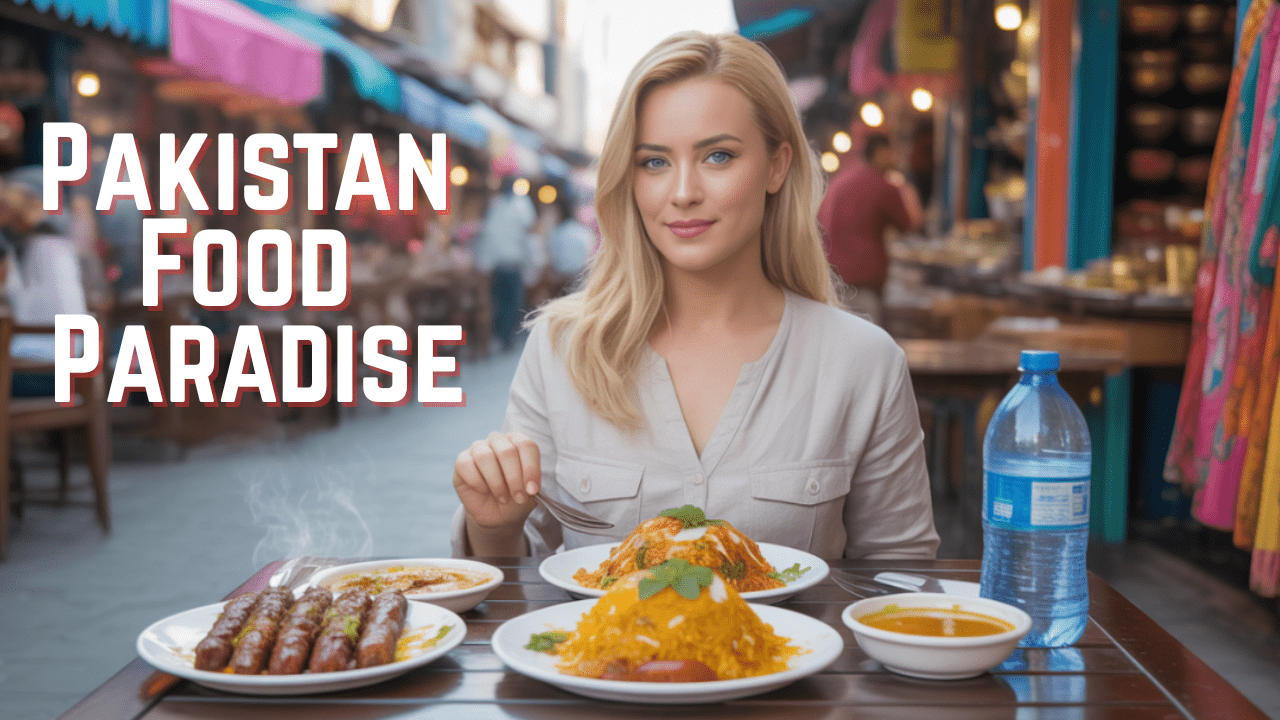Food Hygiene Advice for Western Visitors in Pakistan?
Pakistan is a dream destination for most tourists, with exquisite mountains, rich cultural heritage, and a flavorful food scene. From fiery kebabs in Lahore to scented biryanis in Karachi, cuisine forms the nucleus of Pakistan’s travel tourism culture. Yet, for Western tourists, the change in climate, use of ingredients, and standards of sanitation can sometimes lead to a stomach upset or health concerns. Understanding how to dine safely while indulging in Pakistani food will enable you to concentrate on the adventure rather than be concerned about food sickness.
This blog posts helpful food safety guidelines in Pakistan for Westerners so that you can dine confidently while traveling in the country.
1. Select Safe Dining Options
Street food is a significant part of Pakistani culinary culture, but hygiene standards are not always up to the Western standards most travelers are accustomed to. To be safe:
- Opt for food stalls with high foot traffic, as fresh produce is constantly being cooked.
- Skip vacant or low-traffic stalls, where food can sit in the open for hours.
- Stick to established restaurants or those locals and travel tourism guides recommend.
Tip: Websites such as Google Maps reviews or travel forums’ suggestions can assist you in identifying safe places to eat.
2. Drink Bottled or Filtered Water Only
One of the health issues most frequently reported by tourists in Pakistan is unsafe drinking water. Tap water is not usually safe for Western visitors. Instead:
- Always buy sealed bottled water from reputable shops.
- Check the seal twice before consumption.
- Use bottled water for toothbrushing.
- Steer clear of ice unless you’re sure it’s filtered water.
Bringing a portable filter bottle or water purifier is also a good idea for long trips, particularly in the countryside where bottled water is not an option.
3. Be Cautious with Raw Food
Raw vegetables, fresh salads, and fruits that have not been peeled can sometimes harbor bacteria if not properly washed. Western travelers should:
- Avoid fresh fruits that are not peeled, such as bananas, oranges, or mangoes.
- Avoid raw lettuce, cucumbers, or cut fruits sold on the roadside.
- Choose cooked dishes since high heat kills most harmful bacteria.
When staying at hotels, confirm if they use filtered water to wash vegetables and prepare food. High-end hotels in major cities often have stricter hygiene standards.
4. Prioritize Freshly Cooked Meals
Hot, fresh food is one of the safest options while traveling in Pakistan. At all times eat food served hot. Some examples are:
- Barbecued kebabs from the grill.
- Biryani or pulao hot.
- Freshly fried pakoras or samosas.
Steer clear of reheated food or food left out at buffets for hours, particularly in warm weather.
5. Take a Food Safety Travel Kit
Western visitors traveling in Pakistan can prepare a small food safety kit, particularly if they are venturing out of big cities. Pack:
- Hand sanitizer or antibacterial wipes.
- Rehydration salts in the event of stomach discomfort.
- A reliable over-the-counter drug for food poisoning or diarrhea.
- Travel-friendly cutlery, if you do not wish to use communal utensils.
This minimal effort provides reassurance and allows you to tackle any minor stomach issues on the spot.
6. Be Knowledgeable About Local Food Culture
Part of safe eating in Pakistan is being mindful of and respectful of local custom. For example:
- Food is sometimes eaten by hand, so wash your hands thoroughly beforehand and afterwards.
- In rural areas, hygiene might not be as high as in cities, so take a bit more care.
- Ask locals what is safe to eat and drink; they will generally know where is safe.
By combining cultural sensitivity with prudence, you can enjoy real Pakistani food without keeping health risks high.
7. Use Experienced Travel Tourism Guides
Whether you take a guided food tour in Lahore or a cultural tour in Hunza, there are travel tourism experts who can guide you through the food safely. Guides usually know the safest places to eat and what dishes are okay for Western stomachs. By doing this, you do not only have authentic food but also minimize unnecessary risks.
Conclusion
Food is perhaps the finest way to experience Pakistan. By observing these food safety guidelines for Western tourists, you can savor delicious Pakistani food without danger. Adhere to bottled water, freshly prepared meals, and pick clean, reliable eating places. With cautionary preparation, Pakistan’s food will be one of the experiences you will cherish in your tour trip, rendering your tourist travel experience unforgettable.
You can travel to Pakistan or you can read more blogs so visit mmtravelspk.com!


